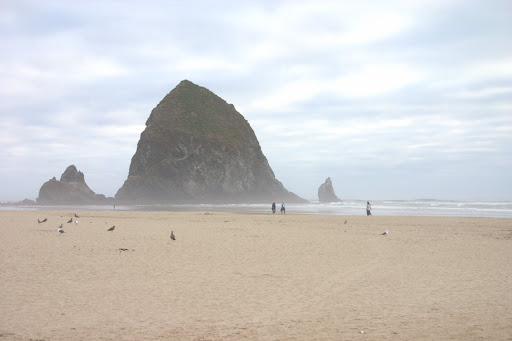 I stumbled across a book the other day while I was in Barnes & Noble. After searching unsuccessfully for about an hour to find a book that looked appetizing enough, I quickly decided on this one. To say the least, it was one of the most inspiring books I’ve read in a while.
I stumbled across a book the other day while I was in Barnes & Noble. After searching unsuccessfully for about an hour to find a book that looked appetizing enough, I quickly decided on this one. To say the least, it was one of the most inspiring books I’ve read in a while.A New York Times bestseller, Three Cups of Tea is the riveting story of a man who has done more to fight terrorism and promote peace in Central Asia than any grenades the
In 1993, Greg Mortenson’s attempt to climb the world’s second highest—and probably toughest—mountain,
When he returned to the
Finally, after a year, he had enough money to return to the village to start building the school. Unfortunately, there were a number of speed bumps along the way, but the school was finally completed. Thinking that he would simply return to America and resume his life, one of his biggest financial backers convinced Mortenson to go into the work full time, and he has subsequently built 55 schools in Pakistan and Afghanistan, as well as providing aid and help to a number of other government-funded schools. All this he has done in one of the most impoverished and war-torn regions in the world.
The book is full of adventure and raises the reader’s awareness to many issues relating to that area of the world. Mortenson’s adventures forced him to cross paths with members of the Taliban, and he has had tea with some of the scariest characters on earth. He was even held hostage for a week in the region of Waziristan—the region in western
Three Cups of Tea has a lot to say about our present approach to the war on terror and Mortenson ultimately shows that it is love, compassion, and education that ultimately eradicates hatred in the human heart, not guns. While the
Reflecting
He then went onto say, “Osama is not a product of
One man, Greg Mortenson, at least gets this. He has done more for the people of
So I ask you: which image of Christianity is better? The one that Greg Mortenson unintentionally displays, or the one that many of us violently promote? Fortunately, there is at least one person in the Muslim world who is giving the people a true picture of what it means to be Christ-follower.
He inspires me to do the same.
Recommendation: Must-read.
Pages: 348.
Quotable Quotes: “I was just an average bloak. . . I don’t know if I particularly want be remembered for anything. I have enjoyed great satisfaction from my climb of Everest. But my most worthwhile things have been the building of schools and medical clinics. That has given me more satisfaction than a footprint on a mountain” (pp. 129, 130—Sir Edmund Hillary).
“I don’t want to teach
“I don’t care where the money comes from. It’s all washed clean in the service of God” (p. 236—Mother Teresa, in response to the criticism of receiving money from “questionable” sources).
“In times of war, you often hear leaders—Christian, Jewish, and Muslim—saying, ‘God is on our side.’ But that isn’t true. In war, God is on the side of refugees, widows, and orphans” (p. 239—Greg Mortenson).
“I want to be thoroughly used up when I die” (p. 286—Julia Bergman).
“It was a very humbling victory. Here you have this Islamic court in conservative Shia Pakistan, offering protection for an American, at a time when America is holding Muslims without charges in Guantanamo, Cuba, for years, under our so-called system of justice” (p. 308—Greg Mortenson).



